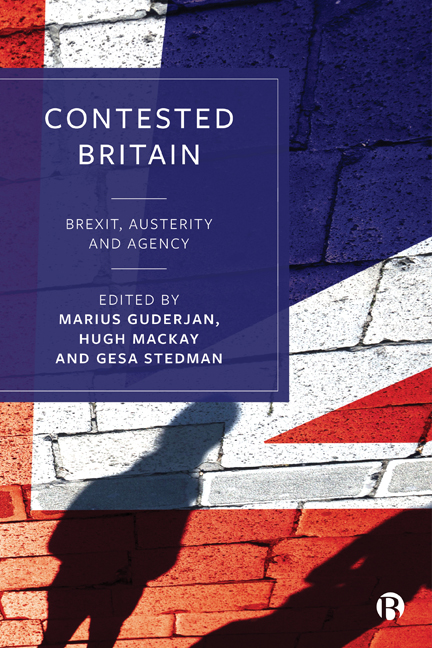11 - From Brexit to the Break-Up of ... England? Thinking in and Beyond the Nation
Published online by Cambridge University Press: 10 March 2021
Summary
Introduction
Political debate around the nature of the 2016 Brexit referendum campaign – the promises made and the strategies employed – and about the implications of the vote have remained fierce in the period since it was held. The fault line between Remainers and Leavers is one that reflects different conceptions of the UK and its future. This chapter identifies some of the geographical differentiation that was apparent in the vote, in order to reflect on the underlying social, economic and political relations reflected in it.
Discussion around the break-up of Britain is usually approached through the tensions associated with nationalism and national identity in Northern Ireland, Scotland and Wales – England remains the residual territory or nation around which whatever remains of the UK might be expected to cohere. Some of those tensions are apparent in the voting patterns of the referendum, even if the messages are by no means clear cut. But here the focus is more specifically on ‘England’ and the tensions that define it as a potential politic-economic space, or set of connected spaces.
Looking at the patterns
The overall UK vote to leave the EU masked significant variation not only between the component parts of the UK as a state made up of four distinctive territorial government units (England, Northern Ireland, Scotland and Wales) but also within those nations and territories that make up the UK. The Electoral Commission reported the votes at a regional level in England and at the level of the nations and devolved administrations in Scotland, Wales and Northern Ireland. This is an unusual scale at which to report results in England, since the regions have no governmental status, but it does help to highlight the broad pattern of the vote across the country. It also confirms, if confirmation were needed, that it is necessary to recognize the extent to which the other nations of the UK are quite distinct political entities. In other words, there is no longer – if there ever was – a unified UK-wide set of more or less shared political understandings.
In the referendum, there was a substantial vote for Leave in England – over 53 per cent of those who voted recorded a Leave vote.
- Type
- Chapter
- Information
- Contested BritainBrexit, Austerity and Agency, pp. 161 - 174Publisher: Bristol University PressPrint publication year: 2020

